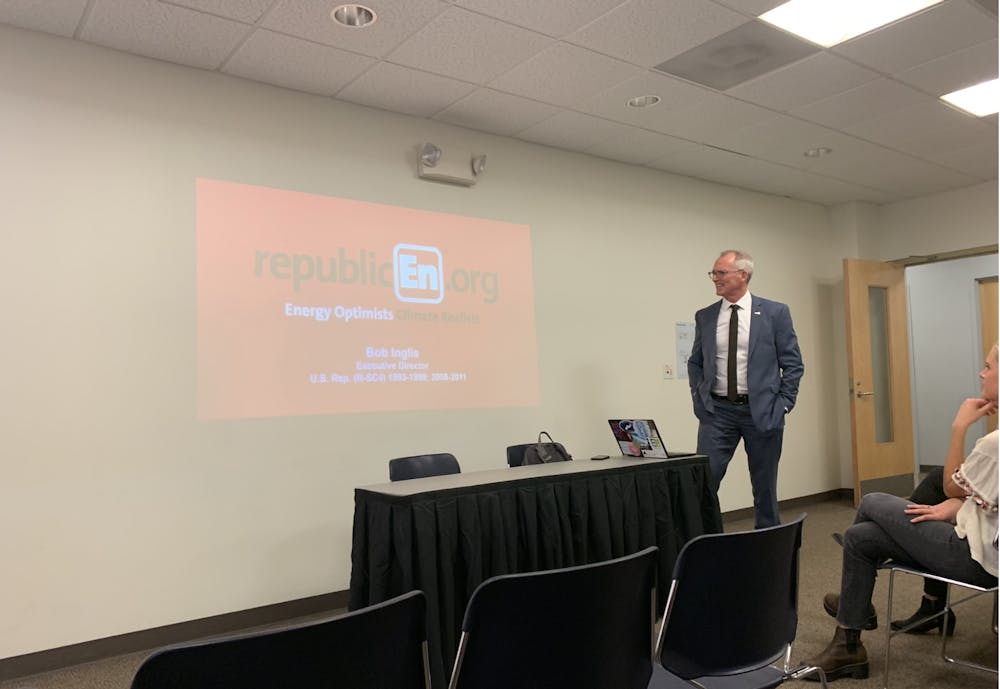Former congressman Bob Inglis wants Republicans to know that caring about climate change isn’t just for liberals.
Inglis said that Republicans typically view climate change from a liberal lens, thinking it means doing with less and overthrowing the current system. His philosophy is far different.
“We come along and we say ‘Actually, what we’re talking about is more energy, more mobility and more freedom,'" he said. "We’re talking about lighting up the world.’”
Inglis visited the University on Wednesday to speak about his "conservative, free-enterprise approach to climate change." His talk was held as part of a speaker series hosted by the UNC Institute of Politics.
Inglis represented South Carolina in the House of Representatives from 1993 to 1998 and again from 2005 to 2011. In 2009, he introduced the Raise Wages, Cut Carbon Act to reduce reliance on fossil fuels. The following year, he lost his seat in a runoff election — but he doesn’t regret introducing the bill.
“In a contest between the enduring admiration of my kids and the temporary affection of the political crowd, I know I chose the better because it is a very temporary love affair that constituents have with a politician,” Inglis said.
After his loss, Inglis went on to found the Energy and Enterprise Initiative at George Mason University, which has since rebranded as "republicEn."
“We picked up the ‘En’ for energy, enterprise and environment," Inglis said. “We say we’re so different we even spell it a little differently.”
RepublicEn is a nonprofit advocacy group focused on bringing conservatives into the climate change movement and promoting free enterprise as a solution to global warming.



